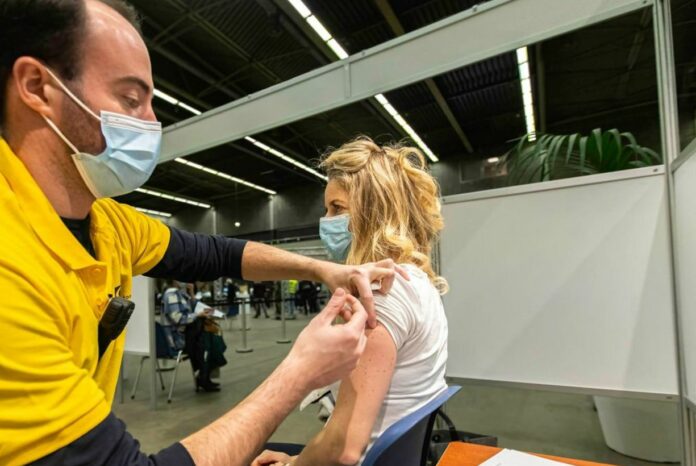The risk of myocarditis among males aged 16 to 19 years after receiving the third dose of the Pfizer-BioNTech COVID-19 vaccine was found to be approximately 1 in 15,000, and the cases were rare and mild, finds a new study published today in the journal Circulation.
Several previous reports and studies from public health agencies around the world, including the US CDC, have emphasized a potential association and higher risk of myocarditis after having received an mRNA COVID-19 vaccine, generating considerable scientific, policy, and public interest.
Myocarditis, or inflammation of the myocardium (the middle layer of the wall of the heart muscle), is commonly believed to be caused by a viral infection. This unusual disorder can damage the heart’s electrical system and cardiac muscle permanently or temporarily, which prevents the heart from beating appropriately. Myocarditis episodes can either go away on their own or with therapy, or they might leave the heart permanently damaged. The American Heart Association’s 2021 scientific statement on myocarditis says that 10 to 20 people per 100,000 in the general population are diagnosed with myocarditis each year when there isn’t a global pandemic.
The Israeli Ministry of Health recently released research about post-vaccination myocarditis in people who got the first and second doses of the Pfizer-BioNTech COVID-19 vaccine. The research looked at what happened after the first and second doses. Myocarditis was rare, but it mostly affected young males who had received a second dose of the COVID-19 vaccine, raising the possibility that there is a link between the vaccine and myocarditis. This new investigation targeted the risk of myocarditis following a booster dosage because the previous one expressed concerns about the possibility of increased myocarditis after a booster dose.
Dror Mevorach, M.D., the study’s lead author and head of the Immunology-Rheumatology Institution at Hadassah Ein Karem Medical Center as well as the chairman of the Israeli Ministry of Health Committee for Identifying Myocarditis as an Adverse Effect of mRNA, asserted: “It is important to understand the connections between this rare heart condition and COVID-19 vaccines so we can monitor the prevalence of myocarditis and pay extra attention to those
Nearly 4 million (3.94 million) individuals in Israel received a booster dose of the Pfizer-BioNTech vaccine between July 31, 2021, and November 5, 2021; 48.7% of the recipients were male. All cases of myocarditis that were reported following the Pfizer-BioNTech COVID-19 vaccination had their health information examined. The data was examined and categorized using the Brighton Collaboration Myocarditis Case Definition by cardiologists and rheumatologists.
According to the analysis, following a 30-day follow-up:
Less than 100 cases (91) of myocarditis were documented, with 35 of those cases developing within 30 days after getting the third dose of the Pfizer-BioNTech COVID-19 booster vaccine.
28 myocarditis cases were either probable or confirmed, and 18 of those cases appeared within the first seven days of receiving the Pfizer-BioNTech vaccine’s booster shot.
Clinically, all 28 cases of myocarditis were mild, and people got better after an average of 3.5 days in the hospital.
Males had roughly nine times the risk of having myocarditis than females across all age categories (1.42 vs. 0.16).
Males aged 16 to 19 had the highest risk for myocarditis, with 6 cases per 100,000 people, followed by males aged 20 to 24 (5.21 cases per 100,000), 30-39 (1.81 cases per 100,000), and 25 to 29 (0.79 cases per 100,000).
The risk disparities between the second and third vaccine doses decreased significantly across both genders and all age categories.
The modifications could have two possible causes, according to the authors.
The first is that, according to Israeli medical practice, “individuals who developed myocarditis after the second COVID-19 vaccine dose did not receive a third shot, which was a medical precaution in Israel”.
The second possible explanation is the gap between doses: “first and second doses are administered approximately three weeks apart, however, the time between a second dose and a booster was about 20 to 24 weeks”.
Researchers feel that more research is needed to better understand what may predispose young guys to myocarditis following a COVID-19 vaccine, as well as the pathophysiological mechanisms involved.
Image Credit: Getty
You were reading: Myocarditis: Still Rare But A Serious Threat For Young Males After MRNA COVID-19 Vaccine
